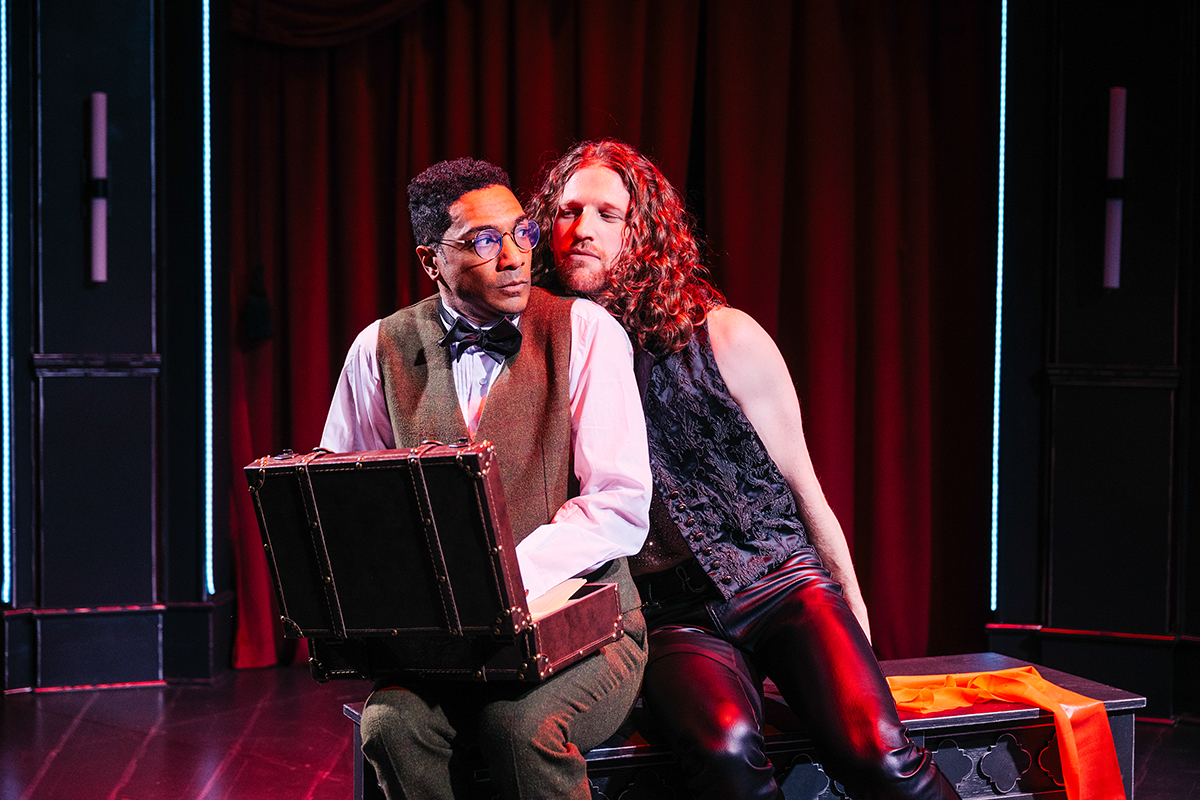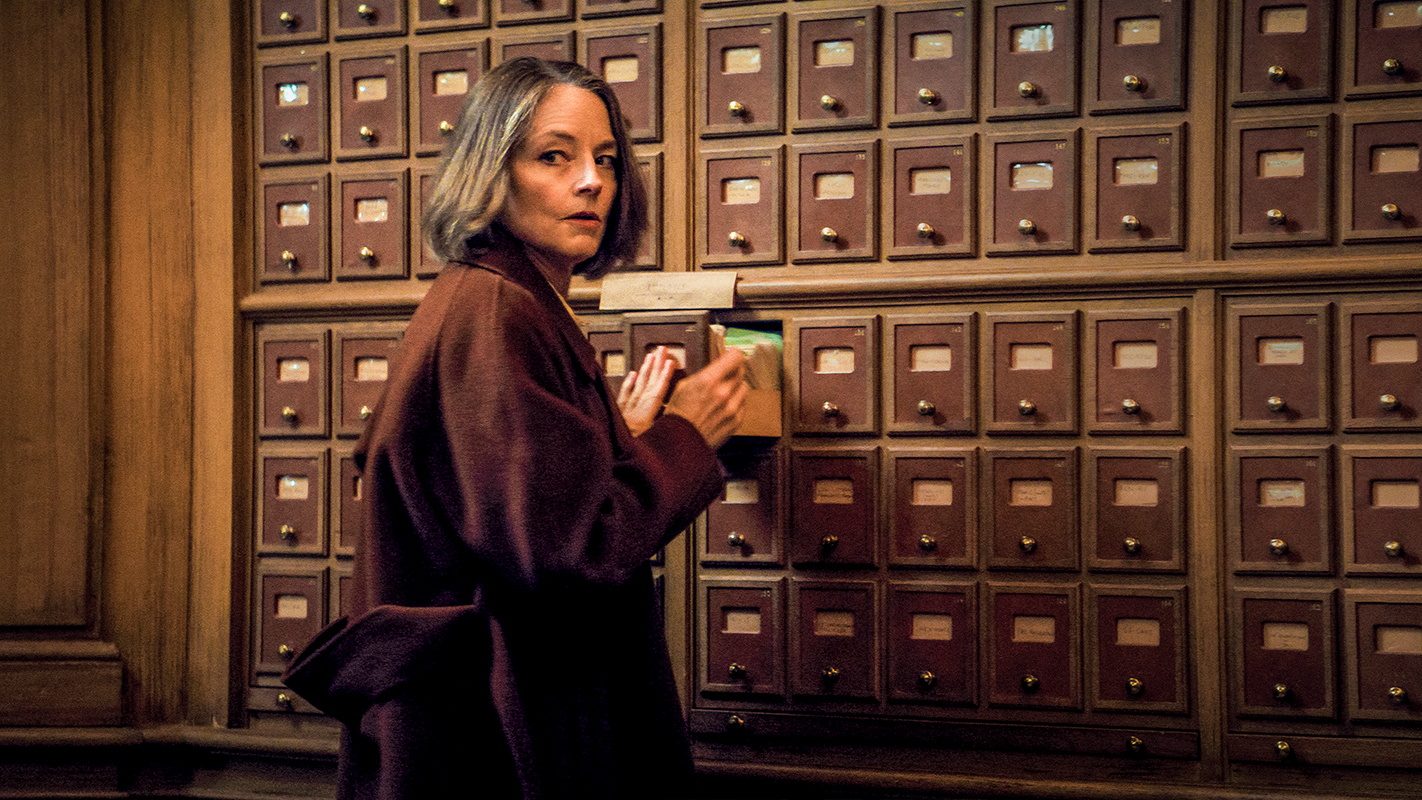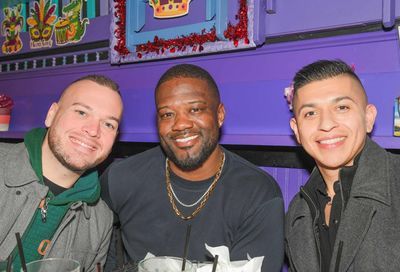Merry Wives Review: Shakespeare Gets a West African Twist
Lively and colorful, Jocelyn Bioh’s Merry Wives at STC blends Harlem culture and Shakespearean farce with mixed results.

A cute, warm-hearted adaptation, Jocelyn Bioh’s Merry Wives grabs Shakespeare by the breeches and bum-rushes him into the 21st century and the boisterous mix of Harlem’s West African community. Although the Bard’s play is certainly here (the program notes tell us Bioh has kept more than 90 percent of the language), there is such a strong sense of the African performance tradition that it feels quite a bit more like the lively telling of a traditional fable. There is a certain charm to this concept and execution, but it also brings a few challenges.
Right out of the box, one of the biggest is the accents. There is no question that this apparently American-born-and-bred cast does a stellar job with them, but there is also no question that it’s often hard to catch some of the language Bioh has so painstakingly preserved. It may bring a pleasing authenticity, but it was up to director Taylor Reynolds to test-drive it for clarity. It isn’t bad enough to get in the way of the conversational gist per se, but for those hoping to be transported on flights of aural precision, this blurring of the edges may cause some heartburn.
The other issue here is just how well a Shakespearian farce translates into Reynolds’s take on the West African theater tradition, which embraces a certain flavor of comical bombast and melodrama. For the crowd who likes it writ large, loud and generally vaudevillian, this will be a pleaser. For those who lean more towards the dry and witty, this may feel a tad heavy-handed.
Case in point is Nick Rashad Burroughs as Mister Nduka Ford, the husband convinced that his wife Madam Nkechi Ford is cheating with the omni-amorous Falstaff. Clearly, the decision here was more is more, with Burroughs at times reaching a fever pitch that is intended to be funny but tips more into apoplexy.
He’s not the only one: as Doctor Caius, Jordan Barbour has some fun with his French accent, but there is more yelling than wit to the portrayal. And when it comes to the merry wives themselves — Felicia Curry’s Nkechi and Oneika Phillips as her partner in crime, Madam Ekua Page — the performances may be full of energy and charisma but there is little nuance to the humor.
And this really is the rub. Toying with caricature and playing it up to the audience is clearly part of the tradition and perhaps Bioh saw it as an answer to problems residing with the original play which, frankly, can all get a bit samey. There are a few too many plottings and ill-fated assignations between the wives and Falstaff, and a less-than-compelling romantic subplot featuring a tangle among the single set.
Unfortunately, making it all more vibrant and demonstrative isn’t quite enough without more laughs. In fact, the scope for genuine humor might have been higher if Bioh had simply set it in Harlem among its American residents. We get a glimpse of this missed opportunity in Bru Aju’s clever and giggle-worthy rendering of local grifter, Pistol. In some ways, this would also have better fit the stunningly clever and evocative set by designer Lawrence E. Moten III.
Still, there are plenty of strong performances in the ensemble. As for the man himself, Falstaff, Jacob Ming-Trent certainly has fun with the role, even if he never quite delivers enough of the Pepé Le Pew chemistry to achieve true comic liftoff. JaBen Early is a convincing Mister Kwame Page, offering a pleasing facility with the language, and Tyrone Stanley (stepping in on press night for Craig Wallace) brings some balancing earnestness to his dignified elder, Shallow.
Other standouts are Peyton Rowe as all-around love interest Anne Page, delivering her Shakespeare with some of the elusive precision, and Kelli Blackwell’s Mama Quickly, who brings a warm and embracing presence throughout the proceedings.
You may not fall into the aisles laughing, but for sheer enthusiasm, energy, and a genuinely interesting cultural interpretation, this is nevertheless a joyful entertainment and time well spent.
Merry Wives (★★★☆☆) runs through Oct. 5 at the Shakespeare Theatre Company’s Harman Hall, 610 F St. NW. Tickets range from $35 to $120, with discounts available. Call 202-547-1122 or visit www.shakespearetheatre.org.
Support Metro Weekly’s Journalism
These are challenging times for news organizations. And yet it’s crucial we stay active and provide vital resources and information to both our local readers and the world. So won’t you please take a moment and consider supporting Metro Weekly with a membership? For as little as $5 a month, you can help ensure Metro Weekly magazine and MetroWeekly.com remain free, viable resources as we provide the best, most diverse, culturally-resonant LGBTQ coverage in both the D.C. region and around the world. Memberships come with exclusive perks and discounts, your own personal digital delivery of each week’s magazine (and an archive), access to our Member's Lounge when it launches this fall, and exclusive members-only items like Metro Weekly Membership Mugs and Tote Bags! Check out all our membership levels here and please join us today!



















You must be logged in to post a comment.